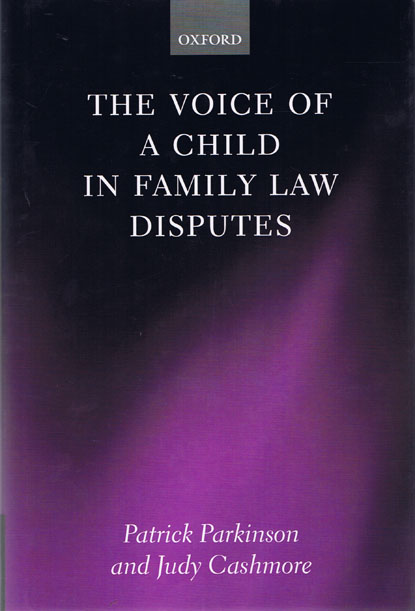
When relationships break down, disputes commonly arise over the parenting arrangements for children, whose living arrangements have to be reorganized at a time of great conflict and turmoil. Most such disputes are resolved without a judicial determination through private agreement, negotiation between lawyers, mediation, or a combination of these methods. This book examines whether and how children should be involved in the process of resolving family law disputes.
Although there is widespread acceptance in the Western world that the views of children should be taken into account, and that the weight given to those views should depend on children's age and maturity, there is much less agreement about how children's voices should be heard.
There are many benefits to giving children a voice in decisions that affect their lives, and the UN Convention on the Rights of the Child identifies this as a right for children. However there are difficulties and dangers in seeking to hear from children, not least because they may be subject to pressure from each parent to express views that support his or her case. Courts dealing with family law issues are constantly faced with a dilemma. Is it better to keep children out of the conflict, or to give them a say so that the arrangements are as workable for them as possible?
This book integrates examinations of these issues with empirical data from interviews which explore the views and experiences of children, parents, counsellors, mediators, lawyers and judges involved in such disputes in Australia. Drawing on this research, the authors suggest ways that children can better be heard without placing them at the centre of their parents' conflicts. They argue that the focus should not just be on how children are heard in legal proceedings, but on how they can be better heard in those families who resolve their conflicts without going to court.